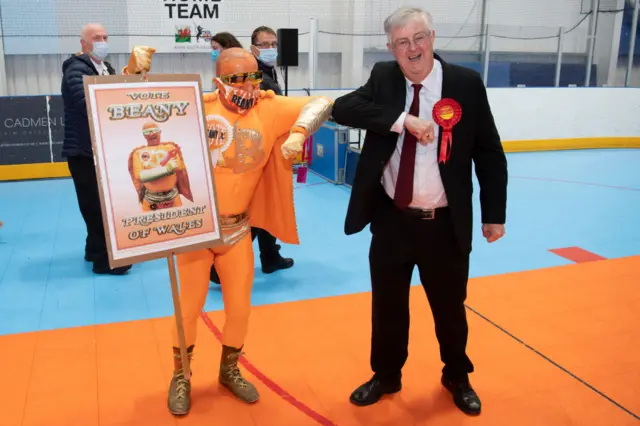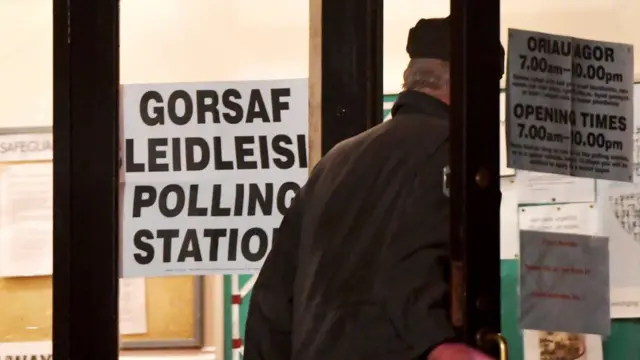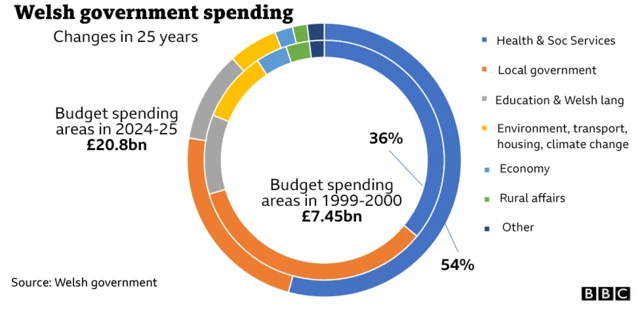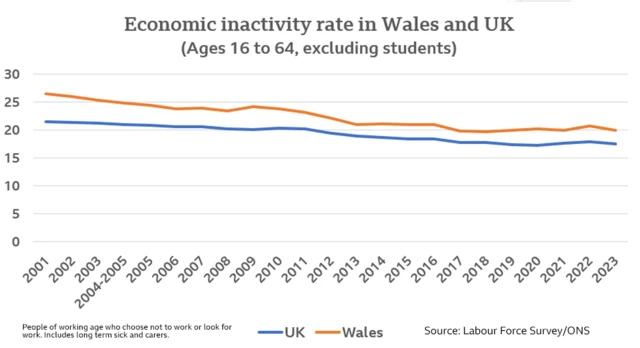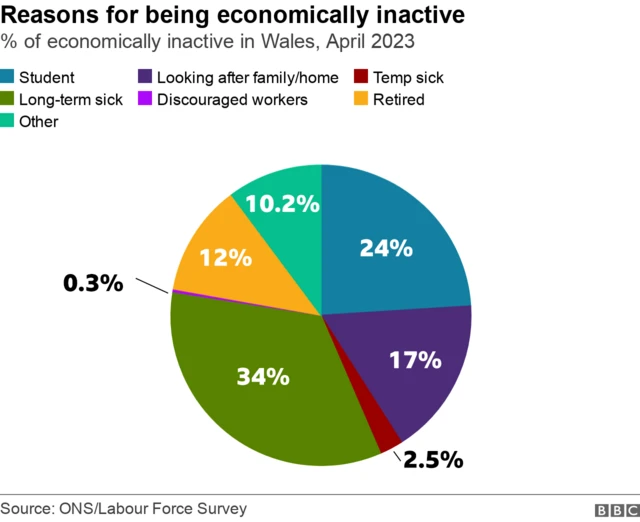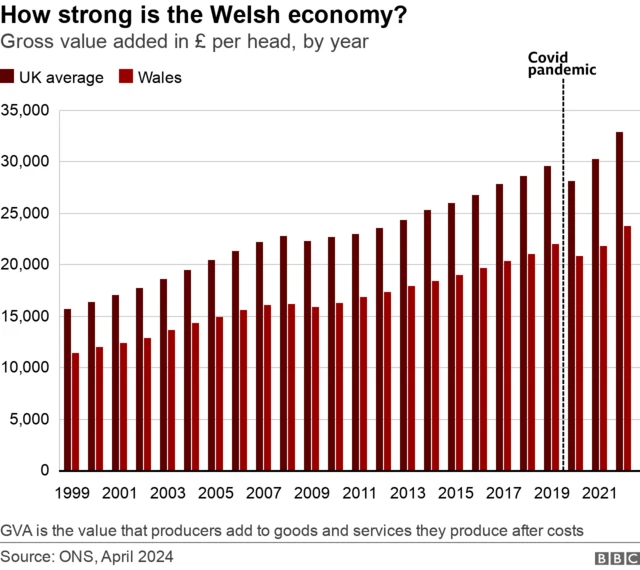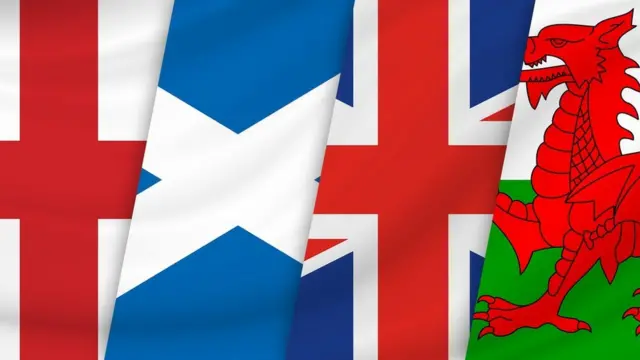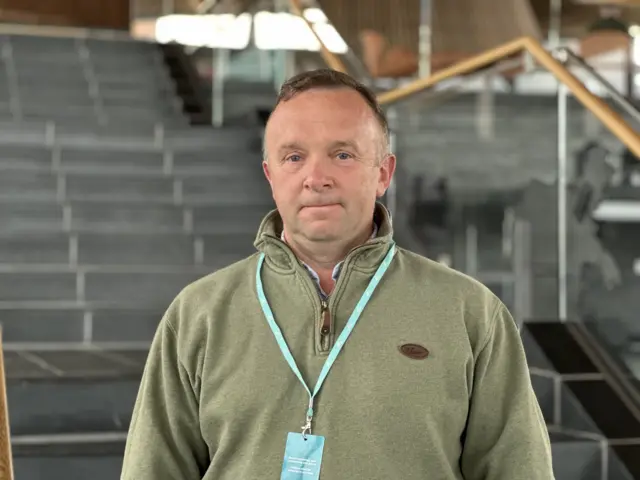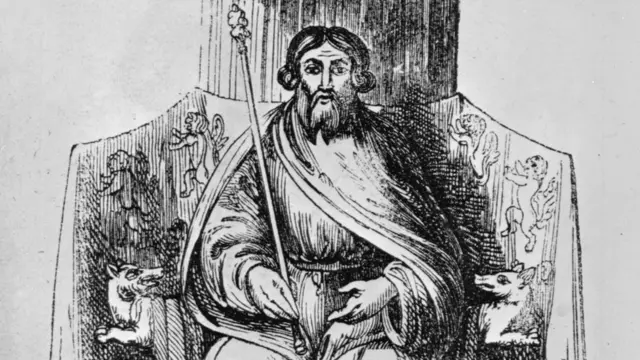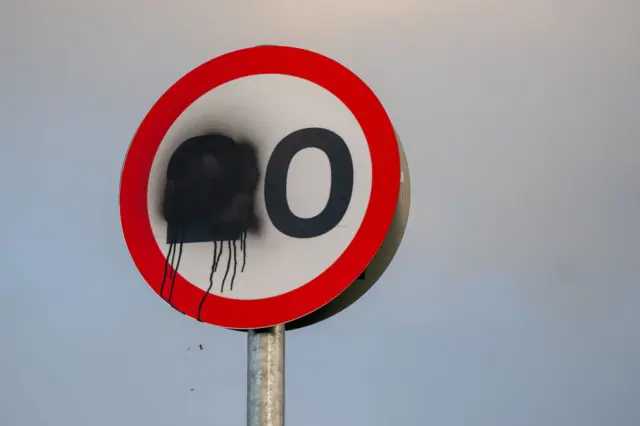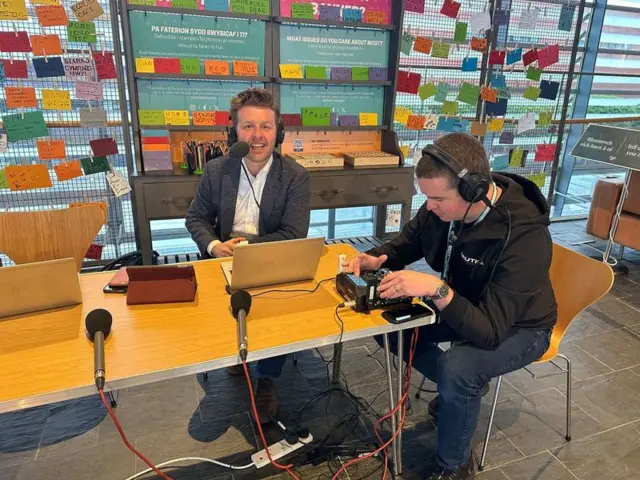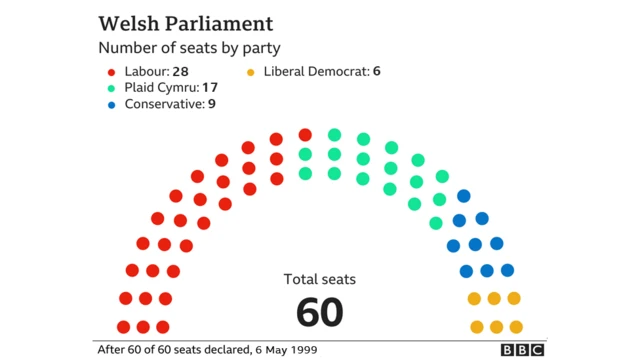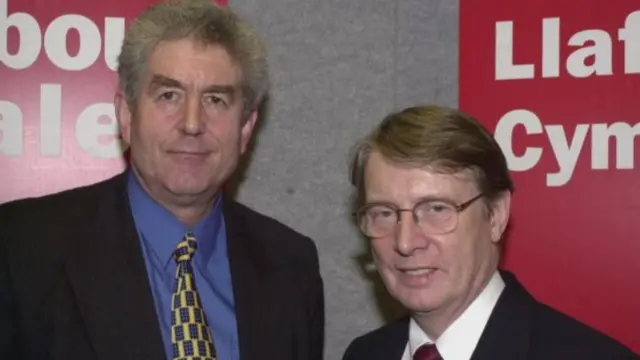Does Welsh devolution go too far or not far enough?published at 10:45 BST 7 May 2024
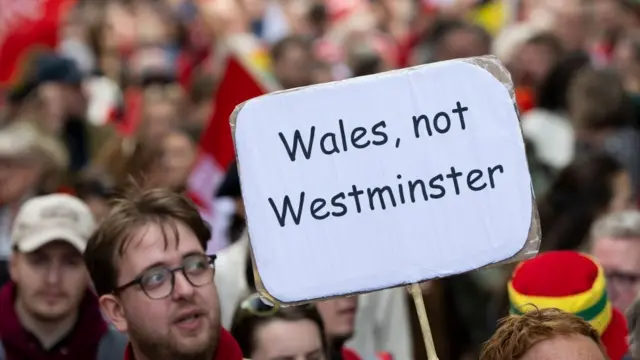 Image source, Getty Images
Image source, Getty ImagesCampaigners argue that less UK government money is spent for each person in Wales than in Scotland or Northern Ireland
Although voter turnout has historically been low at Welsh Parliament or Senedd elections - most people in Wales probably have a view on Welsh devolution.
Some people think it should go further and Wales should have more powers, like former Prime Minister Gordon Brown.
Former Welsh First Minister Mark Drakeford wants Wales to have its own justice system, a bit like Scotland does.
Welsh independence marches across the country in recent years show that some in Wales want devolution to go further and powers in Wales be totally controlled by ministers in Cardiff, with no input from the UK government in Westminster.
But Prime Minister Rishi Sunak believes no more powers should be devolved to Wales, while some think Wales shouldn't have its own parliament at all.

Former Prime Minister and Chancellor Gordon Brown has said Wales "should have more' UK government funding from the Treasury


